“We can’t escape what we are. Every time we look in a mirror, every time we feel personal or professional failure, that tide rises again, reminding us of our weaknesses, our cowardice, and our self-sacrifice. And we are left without excuses. That is why we need someone to save or someone to condemn. Some object of our love or our hate. Someone who makes us forget.”
 Set in Spain in 1941 during the rule of General Franco and the Falangists, with their connections to the Nazis, and again in 1981, in the run-up to the first real democratic elections, debut author Victor del Arbol creates a whirlwind of mysteries within mysteries that will keep even the most demanding reader entertained. Filling the novel with twists and turns, surprises, and action that doubles back on itself, the story line constantly changes, rewriting the information we think we already know, and creating new complications to ponder as we try to reconstruct what we think is happening. The interrelationships among the main characters and their families continue for the forty years of the time span, becoming ever more complex as motivations, betrayals, lies we have accepted as truth, and characters who are not who we think they are become central to the action.
Set in Spain in 1941 during the rule of General Franco and the Falangists, with their connections to the Nazis, and again in 1981, in the run-up to the first real democratic elections, debut author Victor del Arbol creates a whirlwind of mysteries within mysteries that will keep even the most demanding reader entertained. Filling the novel with twists and turns, surprises, and action that doubles back on itself, the story line constantly changes, rewriting the information we think we already know, and creating new complications to ponder as we try to reconstruct what we think is happening. The interrelationships among the main characters and their families continue for the forty years of the time span, becoming ever more complex as motivations, betrayals, lies we have accepted as truth, and characters who are not who we think they are become central to the action.
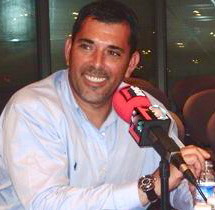 Ultimately, the novel raises questions more challenging than those of the typical thriller: questions of our own identities, our perceptions of ourselves and others’ perceptions of us, along with the deliberate manipulation of those perceptions by groups or individuals (often politicians) who wish to affect our ideas of guilt and innocence, right and wrong. Extremely clever, unusual in its focus, and carefully plotted to keep the interest and excitement high, this novel could well become one of the hits of the summer.
Ultimately, the novel raises questions more challenging than those of the typical thriller: questions of our own identities, our perceptions of ourselves and others’ perceptions of us, along with the deliberate manipulation of those perceptions by groups or individuals (often politicians) who wish to affect our ideas of guilt and innocence, right and wrong. Extremely clever, unusual in its focus, and carefully plotted to keep the interest and excitement high, this novel could well become one of the hits of the summer.
As the novel opens in May, 1981, thirty-five-year-old Maria Bengoechea lies dying in a Barcelona hospital from a tumor. A successful lawyer who has prosecuted people regarded by the government as dangerous to the country, Maria is having difficulty reconciling herself to her fate. A coup attempt, which occurred in February of that year, has led to the arrest of a few of the main conspirat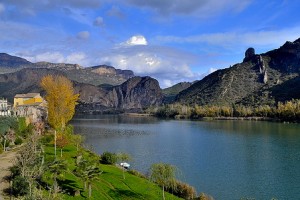 ors, but many of their right-wing supporters remain in office, and Maria, who knows some of their secrets, is unwilling or unable to reveal them. A police guard outside her door remains there, in case she changes her mind, but she has no intention of telling the police what they want to know – there is too great a chance that those who still retain power might act against people she feels honor-bound to protect. As one of her former clients had warned her recently, “This democracy of ours is like a little girl who has already learned how to hide her dirty laundry before she has even learned to walk.” Another part of Maria’s story involves Maria’s father Gabriel, a metal worker who refuses to leave his home in San Lorenzo in Catalonia for medical treatment. Maria does not know any of the important facts about Gabriel and his war-time past, and Gabriel, a widower, is not telling.
ors, but many of their right-wing supporters remain in office, and Maria, who knows some of their secrets, is unwilling or unable to reveal them. A police guard outside her door remains there, in case she changes her mind, but she has no intention of telling the police what they want to know – there is too great a chance that those who still retain power might act against people she feels honor-bound to protect. As one of her former clients had warned her recently, “This democracy of ours is like a little girl who has already learned how to hide her dirty laundry before she has even learned to walk.” Another part of Maria’s story involves Maria’s father Gabriel, a metal worker who refuses to leave his home in San Lorenzo in Catalonia for medical treatment. Maria does not know any of the important facts about Gabriel and his war-time past, and Gabriel, a widower, is not telling.
The next scene flashes back to 1941, when a beautiful and influential woman, Isabel Mola, and her disturbed son Andres are waiting for a train that will take them away from her abusive husband Guillermo, whose assassination she had plotted. Though Isabel never appears again in the story, her long-felt influence continues throughout the novel. What happened to her is an issue which continues for forty years.
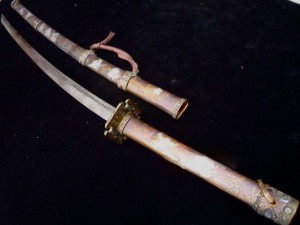 Andres, Isabel’s disturbed son, whose sadness at Isabel’s disappearance has been alleviated by the gift of a Japanese katana (saber) he had coveted, is another part of the story, but he is incapable of understanding all the issues and he is hidden away, guarded from public eye. Additional complexity is added through Andres’s teacher, Marcelo Alcala, who came to Barcelona in 1941 to teach Andres, bringing his son Cesar with him.
Andres, Isabel’s disturbed son, whose sadness at Isabel’s disappearance has been alleviated by the gift of a Japanese katana (saber) he had coveted, is another part of the story, but he is incapable of understanding all the issues and he is hidden away, guarded from public eye. Additional complexity is added through Andres’s teacher, Marcelo Alcala, who came to Barcelona in 1941 to teach Andres, bringing his son Cesar with him.
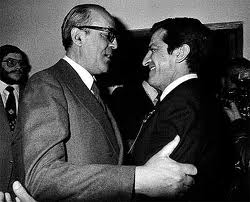 When Isabel’s older son, Fernando, returns from the Russian front as part of Spain’s support for the Nazis, he finds Spain changed and his father hostile. Even in the later part of the story, 1981, all the earlier characters are still involved, and the government is still secretive. Democracy is not yet in flower, and those politicians with guilty consciences have surrounded themselves with others who will support them in exchange for favors which they themselves need to protect their own lives and reputations. Again, the reality of the situation is very different from the “facts” given in the “corroborating” evidence, and even Maria suspects she has made a mistake, though it is not one she can correct.
When Isabel’s older son, Fernando, returns from the Russian front as part of Spain’s support for the Nazis, he finds Spain changed and his father hostile. Even in the later part of the story, 1981, all the earlier characters are still involved, and the government is still secretive. Democracy is not yet in flower, and those politicians with guilty consciences have surrounded themselves with others who will support them in exchange for favors which they themselves need to protect their own lives and reputations. Again, the reality of the situation is very different from the “facts” given in the “corroborating” evidence, and even Maria suspects she has made a mistake, though it is not one she can correct.
Throughout the novel, everyone has reason to ignore the truth and to want to hide his/her collusion in unsavory events. Blackmail keeps many of them from opening their mouths, and threats made against family and those they love “convince” others to play along with manipulators, no matter how much they may suffer personally because of this. Most serious is the conspiracy by some politicians and army officers to topple the government just before the national elections. The conspirators are right-wing collaborators who feel endangered by the democratic process and by the prospect of socialism, and they feel impelled to protect their positions and their wealth. Fate or chance plays a big part in many events, but blackmail also affects outcomes.
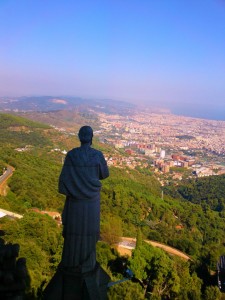 Complex and challenging in its plotting, the novel is a real thriller, energetic and fast-paced. The characters are memorable, in part because none of them are perfect, and several are trapped into committing terrible acts because they believe they have no choice. The interrelationships between guilt, innocence, chance, and fate keep the reader engrossed, and though the violence is sometimes melodramatic, even lurid, the author avoids neat “fictional packaging” in his ending. Fate rules.
Complex and challenging in its plotting, the novel is a real thriller, energetic and fast-paced. The characters are memorable, in part because none of them are perfect, and several are trapped into committing terrible acts because they believe they have no choice. The interrelationships between guilt, innocence, chance, and fate keep the reader engrossed, and though the violence is sometimes melodramatic, even lurid, the author avoids neat “fictional packaging” in his ending. Fate rules.
Photos, in order: The author’s photo appears on http://rac1.org
Rural San Lorenzo in Lleida is where Maria grew up and where her father still lives. This photo by Manuel Portero is one of many beautiful photos on this site: http://www.flickriver.com
This Japanese katana (saber) was made during World War II and may resemble the one given to Andres by his father. http://www.aliexpress.com
Leopoldo Calvo-Sotelo (left) embraces Adolfo Suarez (right), who was Prime Minister of Spain from 1976 – 1981. Calvo-Sotelo was Prime Minister from Feb. 25, 1981 – Dec. 1, 1981. The conspirators in this novel were plotting a coup to undo some of Suarez’s reforms.
Andres lives in seclusion near the Tibidado overlook in Barcelona. http://somedayillbethere.com
ARC: H. Holt
